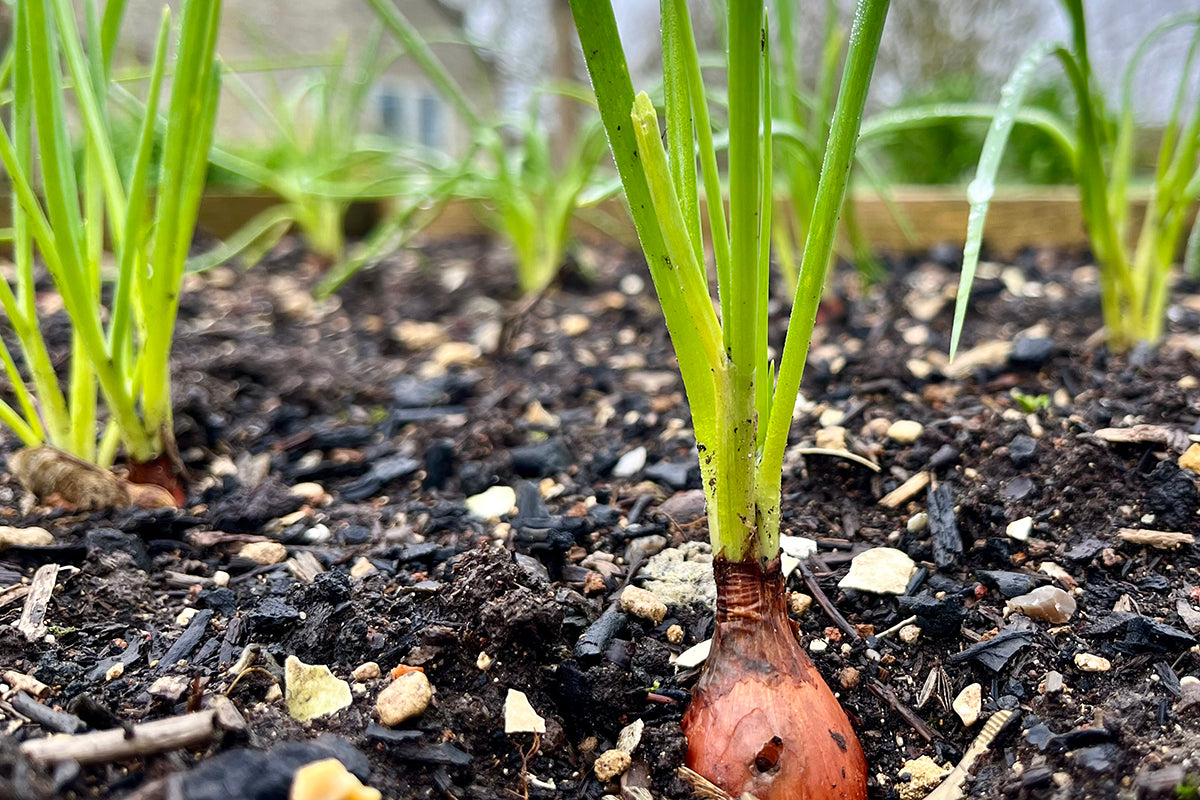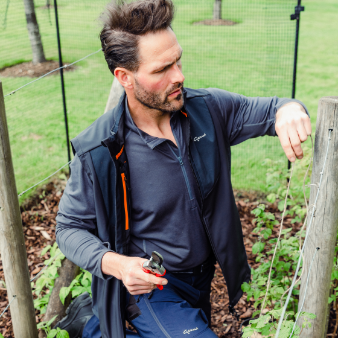Johnny onion

As stocks in the Genus vegetable garden start to dwindle it’s encouraging to see 2024’s produce already underway starting us off on an encouraging footing for the new year. Onions, garlic, and shallots are all proudly defying the cold weather making us want to consider their origins.
With Iran, Pakistan, and more broadly Central Asia being their ancestral home the first thought is how they can tolerate our cold winters? A quick check on the climate of those regions shows that they can experience bitter winters just like ours. Domesticated in neolithic times, it seems that onions and garlic came over with the Romans but it wasn’t until the15th century that they started to appear in written recipes.
During wartime Britain supplies of onion became virtually non existent, one onion raising over £4 in a raffle, while others were given as special birthday presents. Though fruit or vegetables were never rationed onions remained scarce until the Ministry of Agriculture announced that production would be increased fifteen-fold - by 1942 this ambitious target had been met.
Few of us remember the ‘Onion Johnnies’ - the classic image of a Frenchman on a bicycle with strings of onions hung over his shoulder. The trade is thought to have started around 1828 but the golden age of the Johnny was the 1920’s when there were 1,400 of these men crossing the channel to sell 9,000 tonnes of the vegetable each year. Sadly the trade dwindled to almost nothing in the 1950's.
These days as gardeners we're spoiled for choice - red, brown, white, shallot, garlic or spring - there's hundreds of options to be had in sets or seeds. When buying a simple net of onions, or adding them to our meals, it's fascinating to understand the history and the journey that has been taken by a vegetable that plays a part in our diets on a daily basis.







